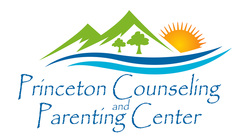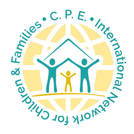|
Is your marriage a mess but you’re afraid to get a divorce? Are you scared of being on your own? Are you staying together for the kids? There are so many things to think about before you decide to get a divorce. The average person thinks about divorce for 7 years before taking that step. So it makes sense if you’re stuck and not doing anything about it.
If you’re feeling that you don’t want to stay married but you don’t want to get divorced, you’re not alone. Many people stay in their marriages because they’re scared of the alternative. It feels better to be together because your children are in an intact family. And staying married feels safe and stable. But if you’re unhappy, depressed or anxious, that’s not really stable. And if your children see conflict or tension, that’s not good for them. If you’re unhappy in your marriage, it’s taking a toll on you. Even if your marriage looks ok from the outside, you know what’s really going on inside. If there is no connection, no communication, no partnership or respect, it can feel horrible. Maybe one partner shows their rage toward the other in private but everyone outside the family thinks he or she is a great person. Maybe one partner isn’t willing to work on the marriage and expects the other to accept it as it is. Being in an unhappy marriage can have emotional and even physical consequences. I understand; I was there too. I started having optical migraines and acid reflux which are both physical conditions that stem from stress. Once you realize that there are serious negative consequences to being in an unhappy marriage, you can start to get closer to a decision to divorce. Understanding that you deserve to be happy, and your children deserve to have happy parents, provides you with the courage to overcome your fears of getting divorced. Millions of people have gotten through divorce, you can too. Get support as you go through this very stressful time - get support from family, friends, a therapist or from my group coaching program – Thriving Through Divorce. If you know it's the right decision, you can find the courage to do this. You can build an amazing new post-divorce life for yourself and your children. Divorce is one of the most stressful experiences and involves complex emotional, financial and legal issues. In order to be able to think clearly through your divorce, it’s so important that you take care of your emotional self.
1. If it feels wrong, don’t do it The ability to set boundaries is crucial and can be hard, especially after separating from a long-term relationship. What do healthy boundaries look like? Not doing something that feels wrong or uncomfortable is a great starting point. If your Soon-to-be-ex (STBX) tells you to do something and you don’t feel comfortable doing it, you need to be able to let him or her know that you disagree. This doesn’t mean that you should be disrespectful, it means that you can let them know that you appreciate their perspective. But in the end, you get to decide what you want to do. 2. Stay calm when you communicate with your STBX Communication is key in any relationship, divorce included, and being calm will help you effectively communicate with your STBX. Try not to react to the emotion in the other person’s voice, this can escalate a simple conversation into an argument. Instead, recognize that you don’t have to respond right away. Take some time to breathe deeply, and think about how you want to respond. Not only will this prevent an argument, but it’s less emotionally draining on you. Lastly, if the conversation is getting escalated, remove yourself until you are both able to respond calmly. 3. Trust your instincts Your instincts are there to tell you when a boundary is being pushed too far and it’s key to listen to them. When you can feel yourself being pushed too far or being put in an uncomfortable situation, trust when that gut feeling kicks in and walk away. 4. Don’t be afraid to say “no” Sometimes we say yes because we feel intimidated or want to please others. Saying “no” helps to establish healthy boundaries and enables others to understand what to expect from you. When a situation arises, you might feel obligated to go along for the sake of agreement but if you say yes and then feel resentful, that’s not good for anyone. Learning to say no and not feel bad is key to taking care of your emotional self. 5. Let go of what you can’t control You won’t be able to control everything. There are things that may happen that are not ideal for you or your children. In most cases, everything will still turn out ok, even if it’s not exactly what you wanted. Detaching and letting go are such important skills when you’re going through divorce and will save you so much stress. If you’re struggling with this, I recommend practicing mindfulness and meditation. Caring for yourself emotionally can make a huge difference in helping you move forward through your divorce in a healthy way. When you’re able to take better care of yourself mentally and physically, your decision making will improve, you'll be able to think clearly, you’ll be able to be there for your children and you can conquer anything that comes your way! One of the most important skills you need when you’re getting divorced is knowing how to successfully negotiate your agreement. What makes this so difficult is that emotions can get in the way and then you can’t think clearly. You need to be able to put your emotions aside and think clearly through your divorce negotiations. Here are 3 key points you must keep in mind to negotiate your divorce agreement well. Your divorce agreement is simply a legal business transaction. 1. Your divorce agreement is simply a legal business transaction. This is about your financial future. You wouldn’t make a business transaction without thinking through all of your options. Take your time to think through what the best decision is without being distracted by anger or revenge. For example, do you really want that old coffee table or picture just because he wants it? Emotions block you from having clarity about your priorities and end goals. I know divorce is an emotional time and you are hurting. It is important to deal with those feelings, but learn how to separate them and put them aside for a while. Make space and time for those feelings and then put them back on the shelf so you can focus on your finances and make smart decisions through your divorce. 2. Identify and rank your top priorities. What are your priorities? What will you fight for? NOTHING ELSE is as important as this thing! Maybe it’s your retirement account, your schedule, where you live or if you keep your house. Rank 3-4 things that are the most important and realize you probably won’t get them all. Maybe you give up the #4 priority for the #1 priority. Knowing what matters keeps you laser focused and allows you to be flexible with the hundreds of other less important decisions that come up in divorce. Separate short term and long term priorities. An example of a short term priority would be that you need your car repaired. A long term priority would be the custody arrangements. Your top 3-4 list should be long term priorities. 3. Know your ex’s priorities and be creative! Think about your ex’s priorities. Do you know what’s important to them? If you discuss what matters to them as well as your own priorities, you can reach an agreement much quicker.. Tell your ex, “I don’t want this to drag on forever and spend all this money on attorneys. What is it that you really want? If you can tell me, I can try and make that happen.” If your ex won’t share, use what you know about them and be creative! Let go of things that are not your highest priority. In my divorce, I realized I was digging in on short term things like season tickets when all that truly mattered to me was the parenting schedule. My ex, as a financial planner, felt strongly about certain financial assets. In the end, I let go of things my attorney wanted for me financially because I understood what mattered to my ex and what mattered to me. 5 helpful phrases to use in your negotiations: Remember, this is a business negotiation. Nothing that your ex has done to you in the past matters now. Use these phrases in a businesslike manner and respectful tone to better understand your ex’s priorities so you can be an educated and creative negotiator.
Knowing your priorities in divorce makes all the difference with negotiating your agreement. If I had been clear on my own priorities and what mattered to my ex in the beginning, I would have saved SO MUCH MONEY in lawyer fees and arguments and bickering and stress. If you use the approaches I outlined, you are well on your way to negotiating a divorce agreement that works for both of you in the end. This past year has been tough and a lot of people have lost hope for a better future. But that can change by recognizing that we’re somewhat in control of our thoughts. Did you know that we have about 6,000 thoughts per day? And about 80% of them are negative! That means that we have a huge amount of negative self-talk. We spend a lot of time telling ourselves that we’re not good enough, not smart enough, not thin enough or not as good as someone else. When we do this often, it becomes a habit. We can start feeling bad about ourselves and lose hope.
The great news is that we can change these negative habits and train our minds to interpret our experiences in a more positive way. Sure, life can be HARD, but our patterns of thinking and the way we perceive the world can make it much harder than necessary. In the words of Greek Philosopher Epictetus, “We are disturbed not by things, but by what we think about things.” Therefore, if we can change the way we think, we can change the way we feel! Have you ever expected, even visualized disaster? Have you noticed or heard about a problem and started asking, “What if?” What if tragedy strikes? What if it happens to you? That way of thinking is called “catastrophizing” where we catastrophize a problem and make it worse by escalating our negative thoughts. With catastrophizing, we worry that the worst possible outcome will happen. We exaggerate the problem. When you realize you might be catastrophizing, stop and ask yourself the question, “What story am I telling myself?” It might take a moment, but get specific. For example, maybe you are telling yourself that you are ruining your kids and that you are a terrible parent and that none of you are ever going to be happy again. Whatever it is, when you force yourself outside the thoughts and examine them, it becomes apparent how dramatic your story has become. After identifying the story you’re telling yourself, ask yourself, “What other story could be true?” This is where you use your logical brain and reference facts. An example of this would be, “Patty went through a divorce and it was so hard, but her children are all doing well and she moved on with her life and is thriving. That can happen for me, too.” When you identify the negative thoughts, and replace them with positive ones, you’ll feel better. If you think you are a good person who deserves to be happy, you’ll create a happy life. You’ll see possibilities for the future and have hope. While using these techniques takes mindfulness and work, it’s worth it as it can give you a tool to start the new year off in a great place. In today's world, it's very difficult not to feel anxious. With the advent of the 24 hour news cycle, an infinite amount of information coming at us from a multitude of devices and recent current events, people are more anxious now than ever before. Everyone seems to be worried and it is significantly impacting our physical health, our mental health, our relationships and our lives.
What can we do about this? It turns out that we can start with some advice from our elders. In an article in Psychology Today, the author interviewed hundreds of older people over a 10 year period about what they would like to pass on to younger people. You would think they would talk about their regret of a big decision they made or an affair. As they reflected on their lives, over and over they said "I wish I'd spent less time worrying." We need to take this advice from our elders and worry less! The best way to decrease anxiety and worry less is to be in the moment. When you're truly in the moment, you can't be anxious. Often we spend inordinate amounts of time thinking about the past or the future. When thinking about the past or the future, you aren't in the present moment. Being in the moment means looking at the beautiful colors of the fall leaves or noticing the curve of your child's face. It means taking some deep breaths and smelling what's cooking on the stove. It means being in your body, not in your head. Sounds simple? Obviously it's not that easy to do. One very important method to help stay in the moment is meditation. Meditation takes time and practice. There are several meditation apps and YouTube videos that can teach how to meditate. Meditating once or twice a day, it could be for only 10 minutes, has been shown to change the way the brain works and decrease anxiety. The apps that I found helpful are: Take a Break, Headspace and One Moment Meditation - all are free! Also, there are many YouTube videos with instructions on how to meditate. Just type meditation in the search bar and look at all of the options. So the next time you find yourself worrying, tell yourself, "Stop". Refocus your thoughts to the present and use your meditation skills to decrease anxiety in your busy life. You may find that when you become an "older person", you'll have less to regret! The following blog is authored by guest author, Chloe Pearson, a freelance writer and research specialist. She volunteers for Consumer Health Labs, which aims to help consumers make healthy choices. When living with any mental illness, routine can be key. Routines are helpful for everyone but they can make profound improvements on the symptoms and side effects (http://www.drugrehab.org/addiction-suicide-veterans/) of mental illness. As stress decreases and your life becomes more reliable, your symptoms can significantly decrease.
If you have PTSD, here are 3 things you may want to incorporate into your daily or weekly routine: 1. A Well-Rounded Diet Nutritional gaps and deficiencies can trigger or exacerbate a number of symptoms, leaving your illness more difficult to manage. Examples of nutrients that if deficient can affect mood include calcium, folate, iron, magnesium, zinc, Omega 3s and vitamins B6, B12 and D. It’s a good idea to consult your doctor or a nutritional expert to locate where your diet is lacking and how you can correct it. Supplements can always be used to fill any deficiencies that are difficult to correct with diet alone. 2. An Evening Routine Insomnia is a symptom that plagues many people struggling with PTSD. Whether due to nightmares or simply the inability to fall asleep, this symptom can wreak havoc on one’s mental health. While there are many medications or supplements you can use to encourage sleep, one of the best ways to do it is to cultivate an evening routine. A series of actions done at the same time each night will help train your brain to release melatonin at the appropriate time which can help you fall asleep and stay asleep through the night. For example, choose a time during the evening at least 30 minutes before your bedtime to refrain from working or engaging with a screen of any kind. Have a cup of non-caffeinated tea and read a book to wind down. Figure out a routine that works for you and stick with it. 3. Regular and Enjoyable Exercise Regular exercise that you enjoy not only keeps your body healthy but also improves mental health by releasing endorphins. It reduces stress which can be a major factor in the severity of PTSD symptoms. Exercise can also battle co-arising issues such as depression by boosting mood. Be sure you pick a form of exercise you won’t dread. You don’t want to cause stress by forcing yourself to perform an activity you don’t enjoy. Some fun ways to get moving might be yoga(1), hiking, tai chi, or swimming. Learning to live with PTSD is simply a matter of learning through trial and error. Of course, you should always seek the help of your mental healthcare provider to steer you in the right direction. A good diet, a routine and exercise do not replace professional treatment. It is a way to make daily life a little easier on your own. Give a few of these suggestions a try and see what works best for you. Image via Pixabay by FotoArt-Treu (1) Research on the benefits of yoga at https://www.jenreviews.com/yoga/ This is the time of year when children are transitioning. Parents are bringing their kids to college, children are starting school and whether it's your first child or your last child, it can be emotional. Throughout a child's life, parents need to let go - when a toddler first learns to walk, the first day of preschool or kindergarten, the first sleepover, the first day of high school - all of these experiences can be difficult for parents to let their children go out on their own. But the more parents can encourage children to be independent, the easier it will be for children to make these transitions.
Children look to us as their role model for many things. If we have a tremendous amount of anxiety or trepidation about our children's independence, children will be able to tell, even if we don't say anything. Talk to a friend or your spouse about your feelings so that you can express your fears and anxieties. If you're still feeling anxious, see a therapist so that you can work through those emotions. It may be bringing up something from your childhood and it may help to have a few sessions with a professional to lessen your anxiousness. During these transitional times, I encourage parents to ask their children questions - ask them about their feelings about going to high school or leaving for college. Ask them what they're excited for and and what they're nervous about. Ask them how they plan to handle any challenges. After hearing all of their feelings, tell them how confident you are that they are going to be able to handle the experience and give specific examples from their past about how they've handled other difficult situations. This conversation is so important because if children feel that their parents have confidence in them, this can give them the confidence they need to move forward. Letting go of our children is difficult but there's nothing more rewarding for a parent than watching your children conquer a new challenge successfully. I always feel really good when I walk out of yoga class. My head is clear and I feel calm. My yoga instructor, Gemma, has an incredible peace about her and she puts it into each of her classes. But this morning it was different. Gemma was saying something that was really meaningful throughout the class. She was repeating four sentences which captured the idea that I try to share with clients about being peaceful and content. Just repeating them in her calm voice was impacting me. I started to worry that I wouldn't be able to say them as well as she was able to say them. But then I stopped myself from thinking that way because it was interfering with my yoga practice...
When I opened my eyes after the deep relaxation and sat up, I found a hand written piece of paper next to me. I thought I was the only one who got it and it was my own special message. But then I saw that everyone had gotten one. On the paper were those four sentences: "May I be filled with loving kindness. May I be peaceful with whatever comes. May I be free from fear and striving. May I be content just as I am." Such simple words but with so much meaning. Thank you, Gemma, for giving me your inspirational words to take with me!! The holiday season brings a tremendous amount of stress as we are either incredibly busy or feeling somewhat lonely. Many people don't have as strong support systems as they need and it becomes very obvious during the holidays due to the messages that we receive from the media. If your life doesn't look like some picture perfect holiday card then you feel like a failure. These perfect pictures are usually unrealistic. Here are some tips to make it a non-stressful holiday season:
1. Slow down - our society moves quickly. There is so much to do and we feel that if we aren't accomplishing something we're waisting time. Say no to an invitation. Shut off all screens. Sometimes we need to take a break and breathe. 2. Acknowledge your feelings - know that feeling anxious or sad is normal and allow yourself to feel those feelings. Express them in a journal or to a close friend. 3. Look for the positive - if you don't have an extended family or support system, find the people who are there for you. Recognize that you do have people who care about you and who you care about. 4. Reach out - contact others in the community or in religious or other groups. There are others who are waiting to connect with you and will help you get through this time. 5. Spend time in nature - nature can be healing and if you're feeling stressed or depressed, getting out in the sun can be just what the doctor ordered. Sunlight stimulates the production of the feel good serotonin. 6. Make time for yourself - take a walk, listen to music, take a yoga class, take a bubble bath. Spend time with someone who makes you laugh. Do things to take care of yourself so that you can truly enjoy this time of year. |
AuthorJill Barnett Kaufman, MSW, LCSW and Certified Parent Educator is an experienced clinician who helps clients discover new ways to resolve a variety of challenges and bring more happiness and peace into their lives. Archives
November 2023
Categories
All
|
|
If you are in crisis or in need of emergency assistance, please call 911. |
|










 RSS Feed
RSS Feed


